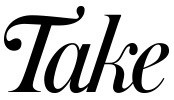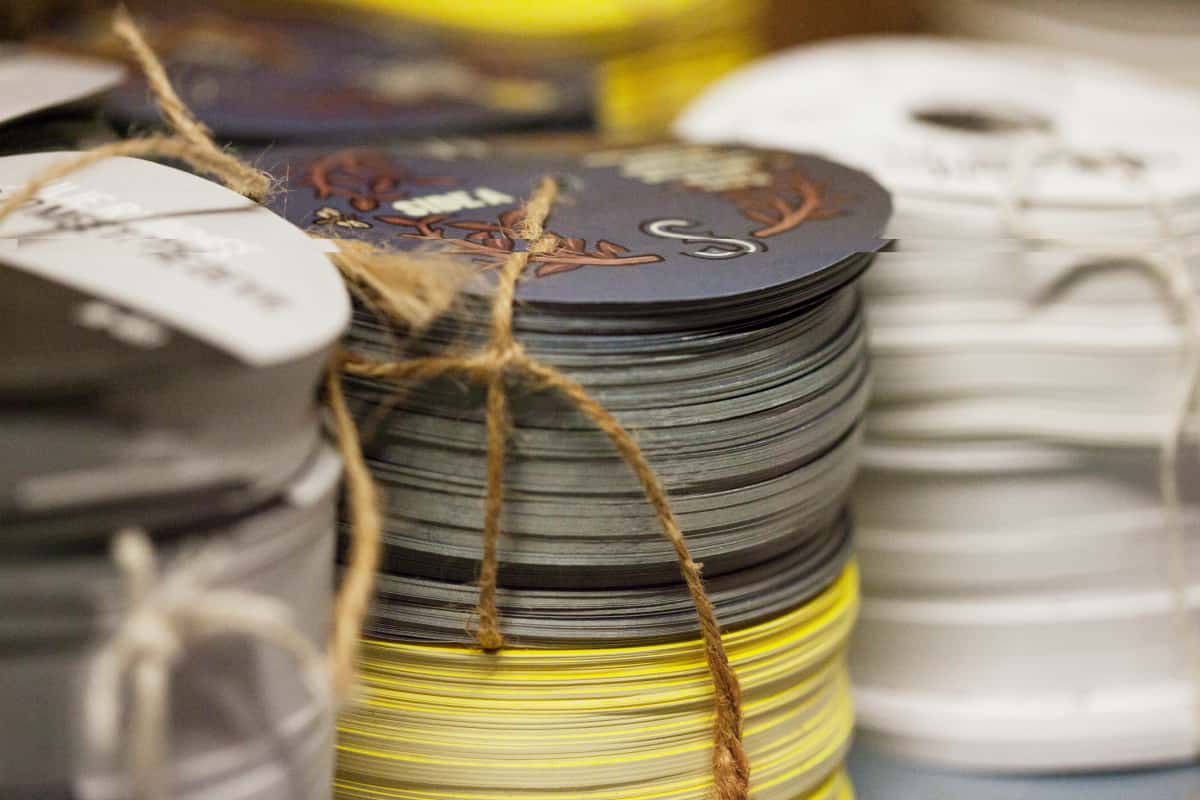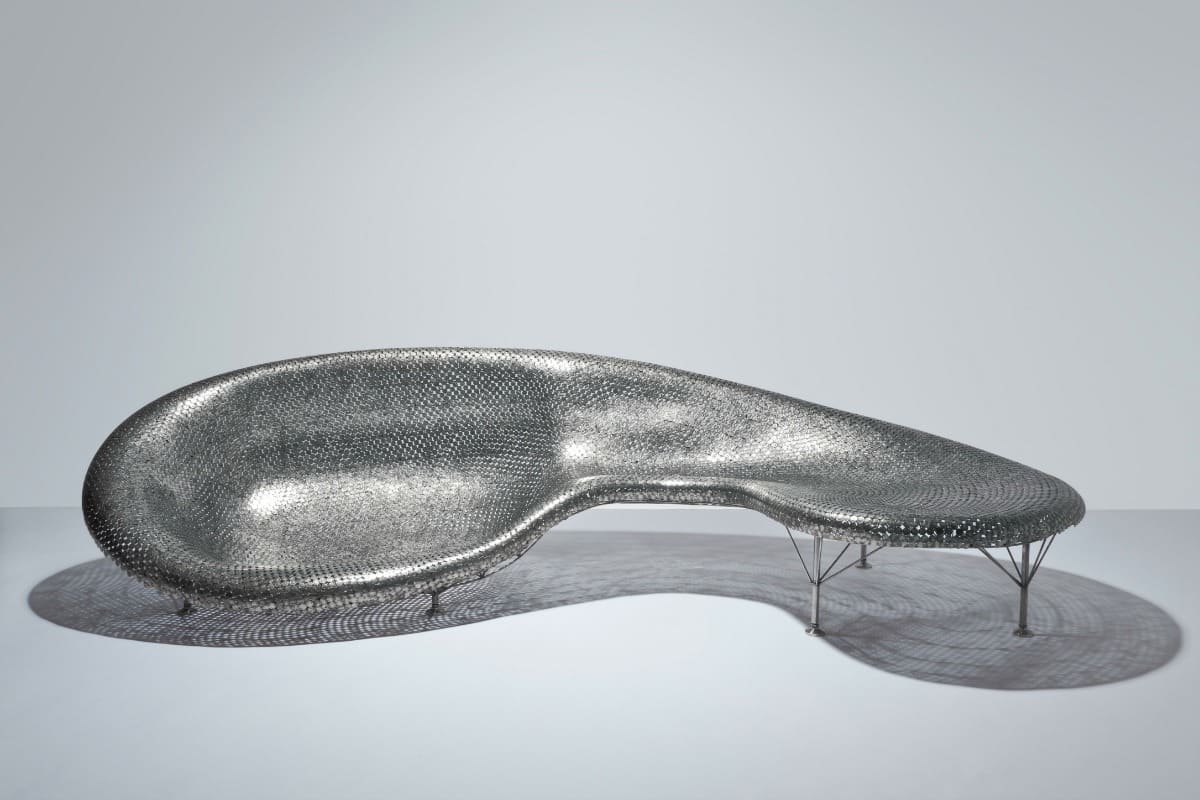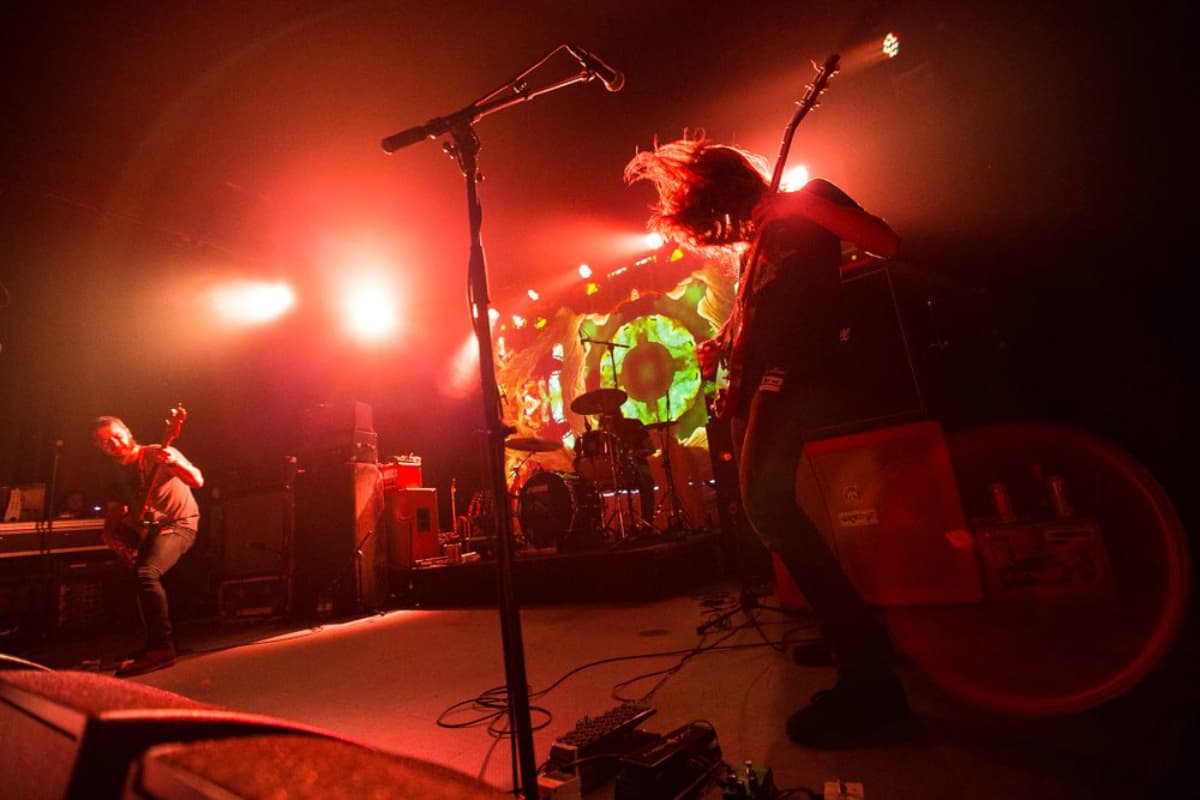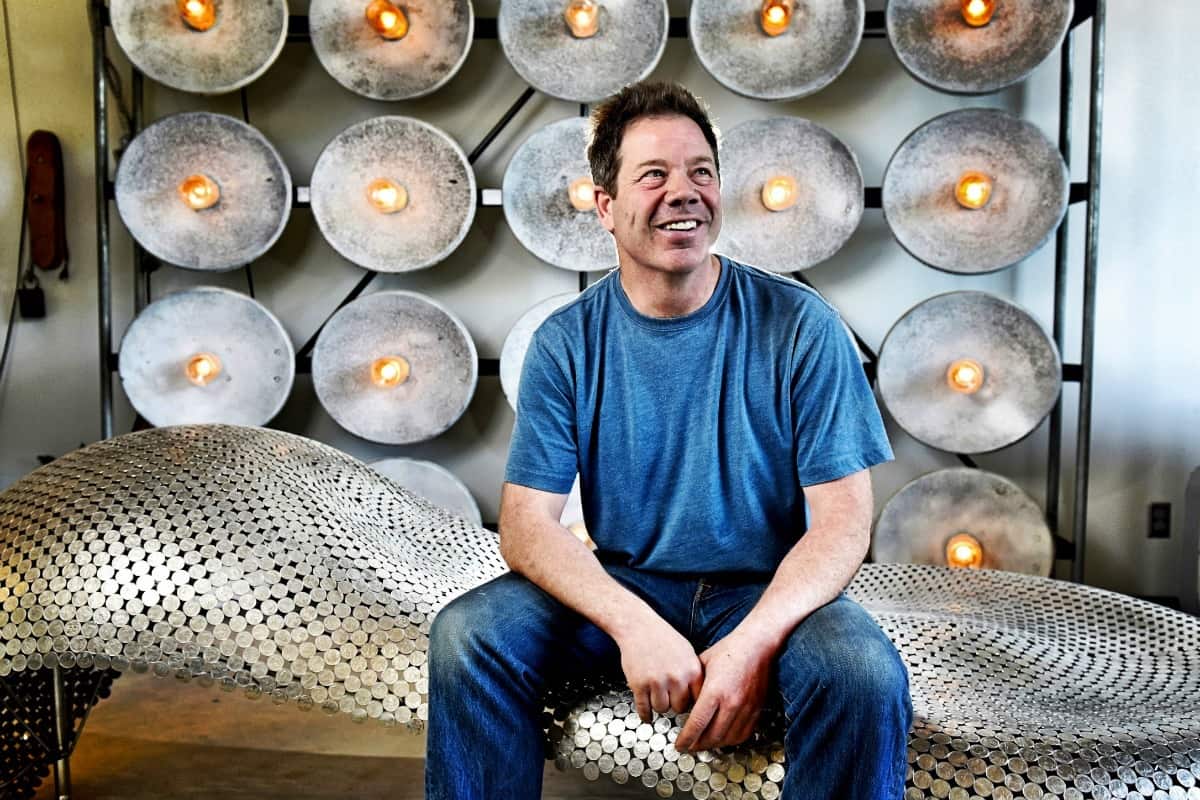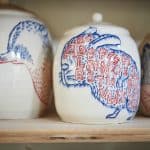Burlington Record Plant presses new music on vinyl, returning the warm sound—and readable liner notes—lost in the age of CDs.
This article originally appeared in our February/March 2016 analog-themed print issue.
In November of 1994, the rock band Pearl Jam released its highly-anticipated third album, Vitalogy, on vinyl, two full weeks before releasing it on CD. If you’re too young to remember the days before albums leaked on the Internet, this was quite a novelty, if not a stunt. Although fewer than 10 years removed from an era when vinyl records were ubiquitous, by 1994 the compact disc had (supposedly) thoroughly banished the format to the Island of Antiquated Tech, where it joined 8-track tapes and rotary phones. Discs were portable, lightweight, slim, sturdy, and, most importantly, sounded goddamn amazing. No skips, no tape, no fuss, no muss. So the fact that Vitalogy sold 34,000 copies on vinyl in its first week was something of a coup, even if most people at the time shook their heads and smiled as if it was an episode of nostalgia or, worse, stubborn Luddism in the face of undeniable progress.
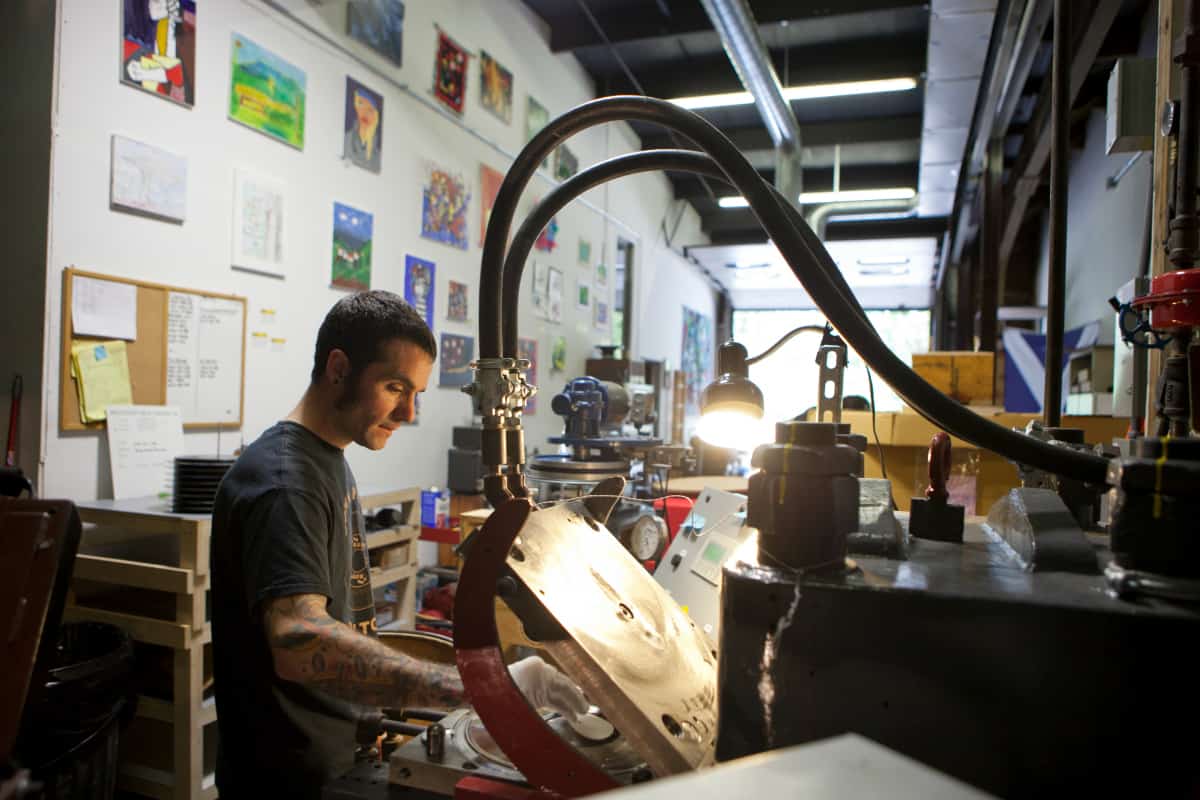
Burlington Record Plant co-owner Justin Crowther
Fast-forward (ahem) two decades later. The CD is all but obsolete, rendered so by phenomena with pleasant, natural-sounding names like “streaming” and “the cloud.” But tucked away in a garage bay behind a bagel shop just outside of downtown Burlington, Vermont, a new business, the Burlington Record Plant, creates actual physical media in the form of, yes, vinyl records. Helmed by honest-to-god working musicians, it’s no gimmick or retro flight-of-fancy, but a testament to the enduring power of a medium that has never fully gone away.
On the hottest day of the summer, I wander into the open garage bay to find Justin Crowther, drummer for one of Vermont’s most beloved hometown bands, “underground outlaw dirt rock” quartet Waylon Speed, hard at work test-pressing copies of the band’s 2014 album, Kin. He is surrounded by a phalanx of machinery and not a small amount of vintage radios and other sonic equipment. Within a minute of shaking hands amid stacks of traditional black platters, he proudly shows me a copy of Kin recently pressed on white, marbled vinyl. “I’ve just started experimenting,” Crowther says.
He is also quick to establish a running theme about the Burlington Record Plant—that it’s a labor of love. And both words, labor and love, are equally important. Gesturing toward the main piece of machinery currently churning out test pressings, he explains “I bought this from Germany, [where] it was totally just mothballed. We spent the better part of the year totally rebuilding it, like, five times over.”
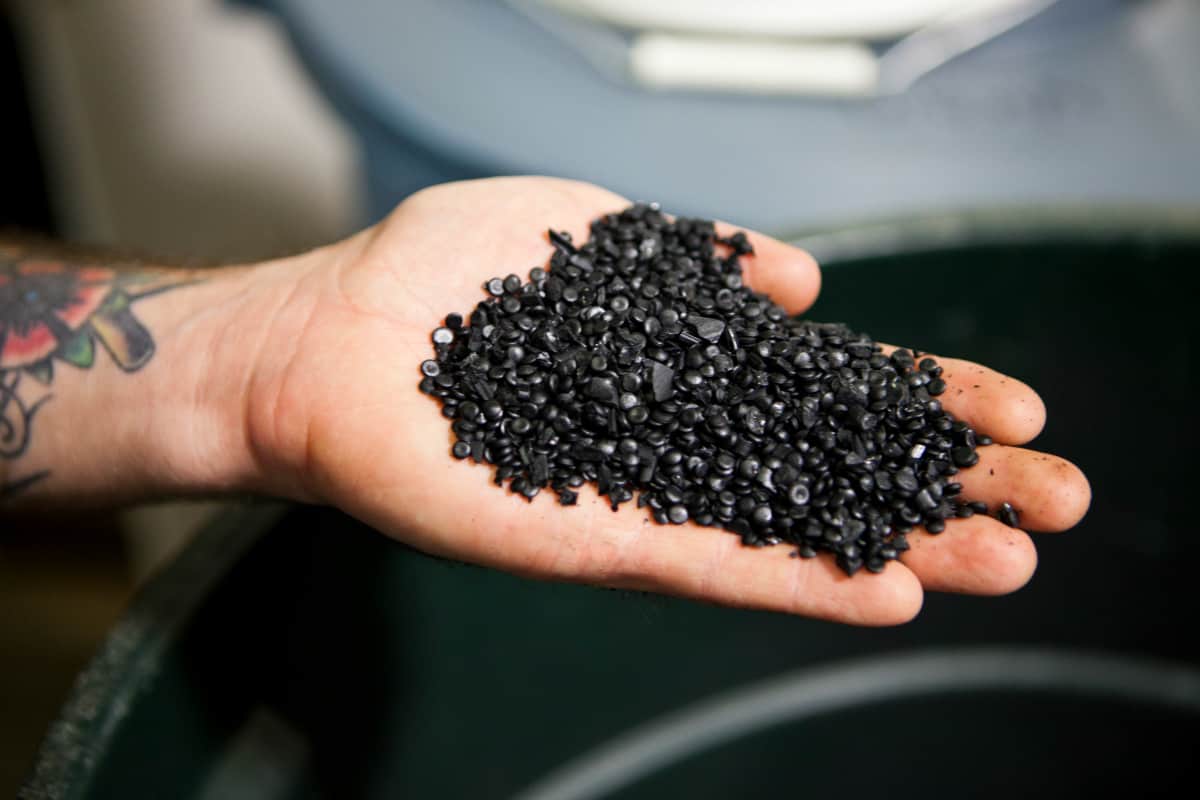
Vinyl pellets that will be melted into records.
The “we” refers to the members of Waylon Speed (Crowther and his brother Noah, plus Reverend Chad Hammaker and Kelly Ravin); JD Campbell, who also works in the shop; a team of pipefitters who helped with the buildout; and two guys skilled in heavy machinery: Andre Bolduc, who works in hydraulics, and Davor Amrain, an engineer for a snowboard prototype facility just a few blocks away. “I saw [Amrain] was doing injection and compression molding. . .so I gained security clearance, went over [to Amrain’s workplace], and got a tour,” Crowther recalls.
“We took [the record-pressing machine] apart together, piece by piece, and determined what it was doing exactly, and redid it all with these electrical components. This is a custom design for pressing records, like ‘2.0.’” Crowther will later reiterate to me “how grateful I am for the crew.”
With only a few dozen record plants worldwide, there’s no training program or manual of best practices for starting up this sort of thing; it’s sink or swim.
“I put an international plan on my phone, and I called all over the world for a long time and talked to all these old-school guys,” Crowther explains. “And they’re like, ‘Yeah, yeah, yeah, some kid from the States is going to press records, whatever’—because your respect is earned. It’s a very underground, very private kind of manufacturing process [to learn]. So I would take pictures after we rebuilt something and send it back to them. Months later I would keep sending them pictures, like ‘there’s no turning back, man. This is what we’re doing.’ And I just started to build relationships.”
I get the sense pretty quickly how important relationships are to Crowther—relationships with other record manufacturers and with fans, friends, family, and, of course, bandmates. When I mention something about the recent, steady increase in vinyl record sales, he gently but firmly clarifies that money was not the primary impetus for creating the plant. Still, there’s a small but sure list of friends whose projects have helped launch the business.
Just how fast can the Burlington Record Plant’s custom-made rig turn the records out? “The cycle time’s the secret, the secret recipe,” says Crowther. “But I can, if we’re pushing it, in an eight-hour day, press 800 records.”
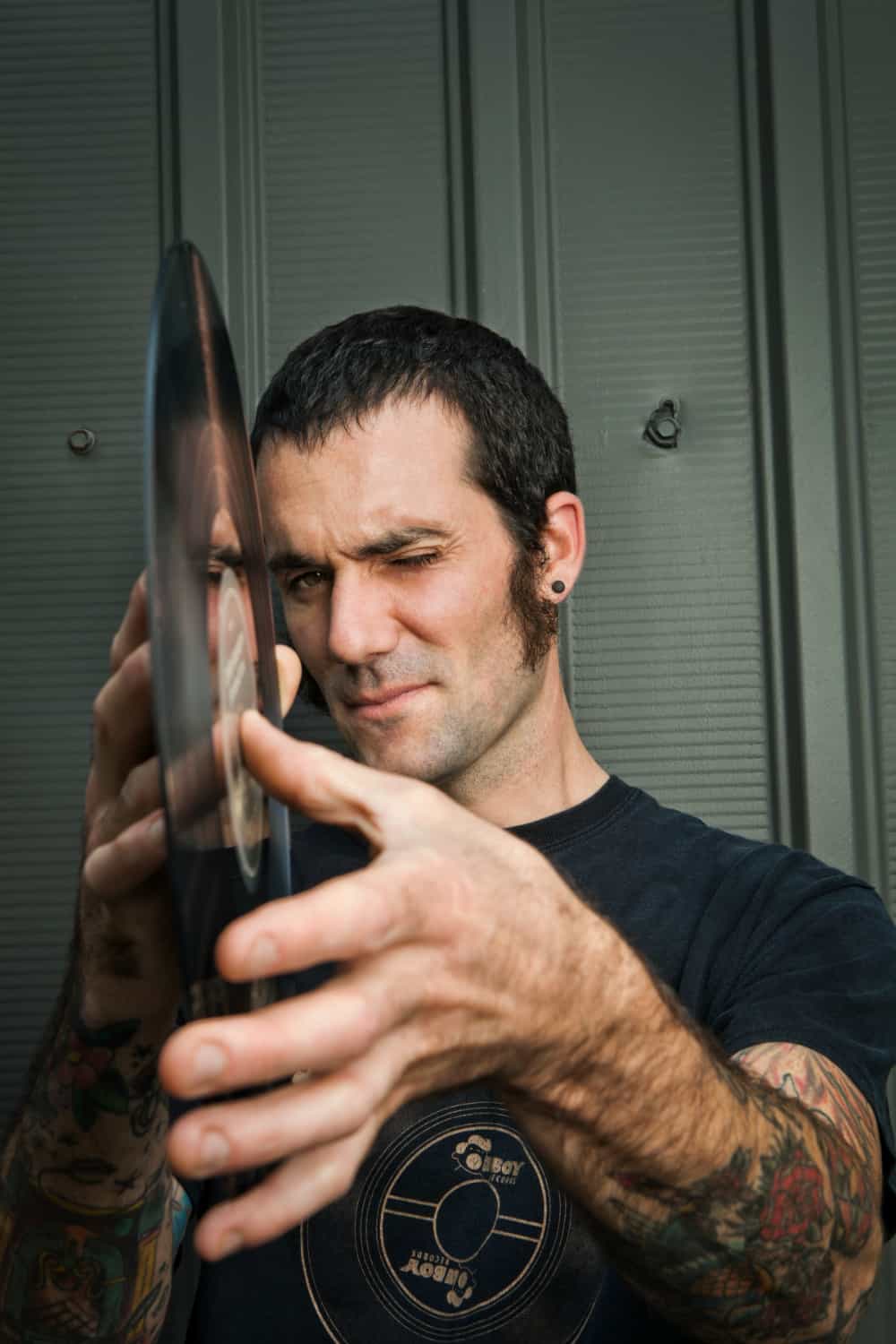
Justin Crowther, who is also the drummer for Waylon Speed, presses records.
That’s more than enough for the smaller runs desired by local bands. Crowther agrees, pointing to a sheet on the wall with a list of projects by select friends and compatriots. “We typically have [runs of] 500, a couple 100s, a 200.” All of the plant’s records are currently 12”, but there are future plans for 10″ and 7″ records. “Right now I’m trying to prevent a situation where we have to tell people, ‘Sorry, but we can’t do your record for six months.’ I’d rather it be like, these are the people I want to work with, there’s a couple records I’d really love to work with.”
And of course there’s Kin. Although released in 2014, Waylon Speed’s fourth album was recorded specifically with the promise of a future vinyl pressing in mind. Crowther puts the record on the house stereo and, so I can get the full effect, hands me a pair of headphones. Vinyl die-hards sometimes catch flak from audiophiles who say the oft-invoked “warmth” (read: superiority) of records is pure hokum. And it’s true that a lot of contemporary, digitally-recorded music, when put on wax, might as well be on CD or mp3. But to my ears, the sound of analog-recorded songs pressed on vinyl is distinctive. Crowther sums it up. For musicians, he says, “The romantic dream is you record to 2″ tape, you use an analog board, the whole analog set up, you get it mastered for vinyl, you get it cut and then plated, and sent. So we did that. It does offer a better spectrum of frequency and stays consistent.”
The physical parameters of vinyl with regard to album length have also played an important role in albums as an art form, and continue to do so, as Waylon Speed learned when cutting Kin. “It’s favorable to have the louder songs toward the beginning, because the grooves are deeper the louder [the sound] is,” says Crowther. I tell him that even as a lifelong music nerd, that piece of information blows my mind. “Same here,” he admits. “Every day is like a head-scratcher. All I’m doing is—and I know this might sound kinda cheesy—but I’m letting the record teach me what I need to do to it. I’m letting the equipment teach me what it wants to do.”
Justin and his brother, Waylon Speed bassist Noah, grew up in a house with a lot of music. “My parents were Deadheads. Lots of Zappa, King Crimson, Neil Young, and Little Feat.” As for his own tastes, “Punk and hardcore drew me in first. The first vinyl record I remember buying was Earth Crisis, Firestorm. Funny how those two genres seem to be so opposite but align in many ways.”
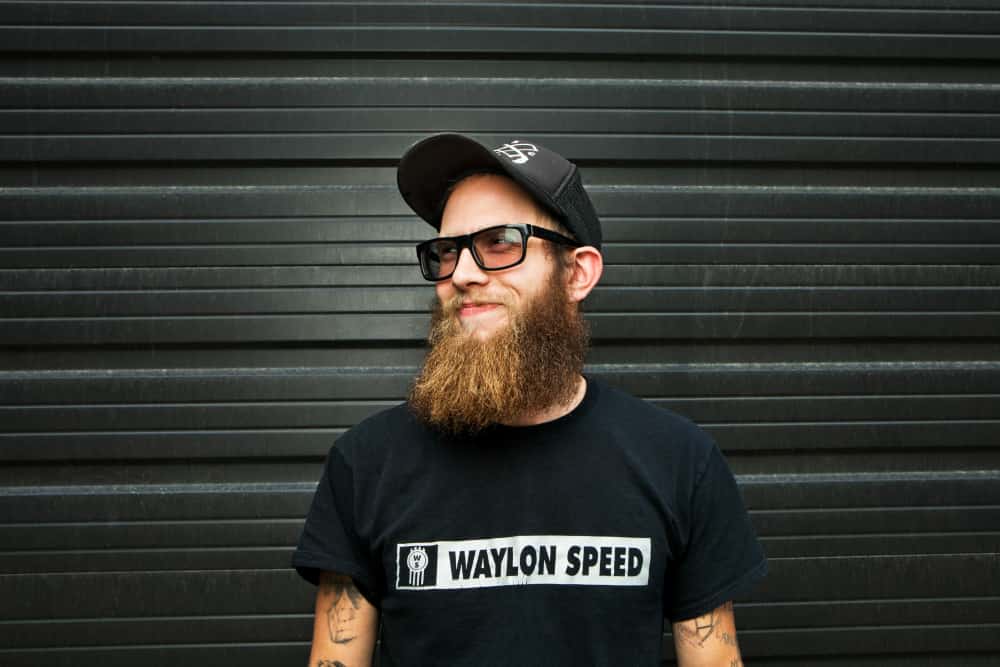
JD Campbell, the Burlington Record Plant’s first employee.
In my mind, what links together the styles Crowther grew up around and the music he makes today, which is partly influenced by the former, is a certain reverence for the past, the idea that you don’t just abandon something because it’s old, even as you’re evolving and pushing forward. “I believe vinyl has remained because it’s such a part of our history,” Crowther says. “Just like the automobile, it changes, but the principle and functionality remain.”
Within the past year, Waylon Speed even supported rock legends Lynyrd Skynyrd on their Simple Man Cruise around the Caribbean, further exemplifying a willingness to transcend generational bounds. And speaking of generations, just a few months after the tour, Crowther and his wife welcomed their son, Ezhno, into the world. “For a month or so, I was burning the candle at both ends,” he says, but adds that he’s figuring out the balance between the band, the plant, and family.
Before I leave, Crowther introduces me to one of his favorite records to listen to specifically on vinyl, Frank Zappa’s Sleep Dirt. It was the first entirely instrumental Zappa album, one he recorded just to fulfill a contract. It sounds fantastic. “You can tell that was made for fuckin’ vinyl,” Crowther says. For all of the convenience of sharing music digitally, there’s no substitute for getting an in-person recommendation where the five-star rating is entirely in someone’s eyes as they set the needle down.
